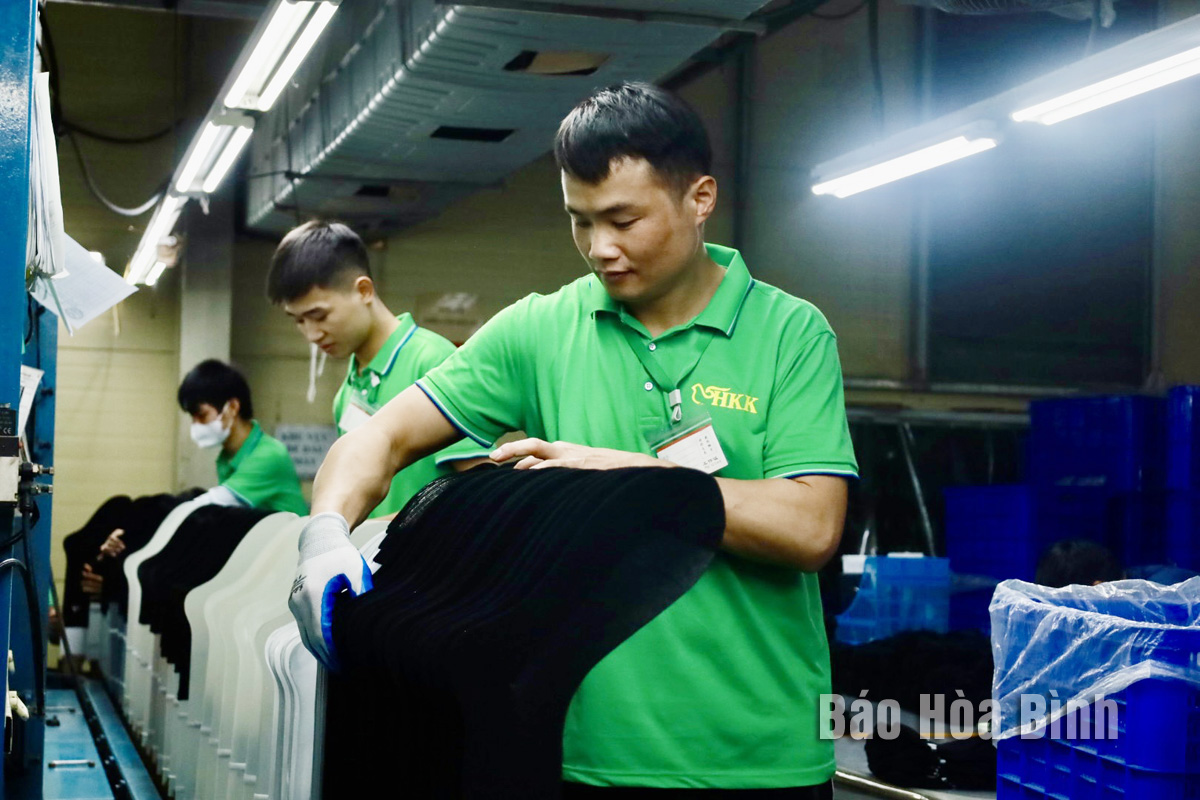



Drying workers at Hoa Binh HKK Knitting Co. Ltd. ramp up winter-spring sock manufacturing.
According to Khuat Thi Hong Trang, chairwoman of the company's trade union, the firm strictly adheres to labour laws, offering fair wages, social insurance, and safe working conditions.
Besides salaries and bonuses, the company has actively supported employees' spiritual and material lives by organising tours during the April 30 and May 1 holidays and year-end parties. At the upcoming year-end party, six workers facing severe hardships will receive special support.
The company has motivated employees with monthly salaries, year-end bonuses, and Lunar New Year gifts. For Tet 2025, workers will receive additional gifts worth between 700,000 VND and 1.5 million VND, depending on their length of service.
The company has prioritised workplace safety by conducting regular inspections and maintaining fire prevention systems. Workers are equipped with protective gear, and provided with biannual health check-ups. It has also ensured that employees work no more than 48 hours a week and offered free daily meals valued at 23,000 VND per portion.
Currently, the company is focused on fulfilling winter-spring sock and knit cap orders for export markets, including the US, Japan, and the Republic of Korea. With stable labourer retention, timely wage payments, and adherence to social insurance obligations, the company has maintained strong productivity and quality standards.